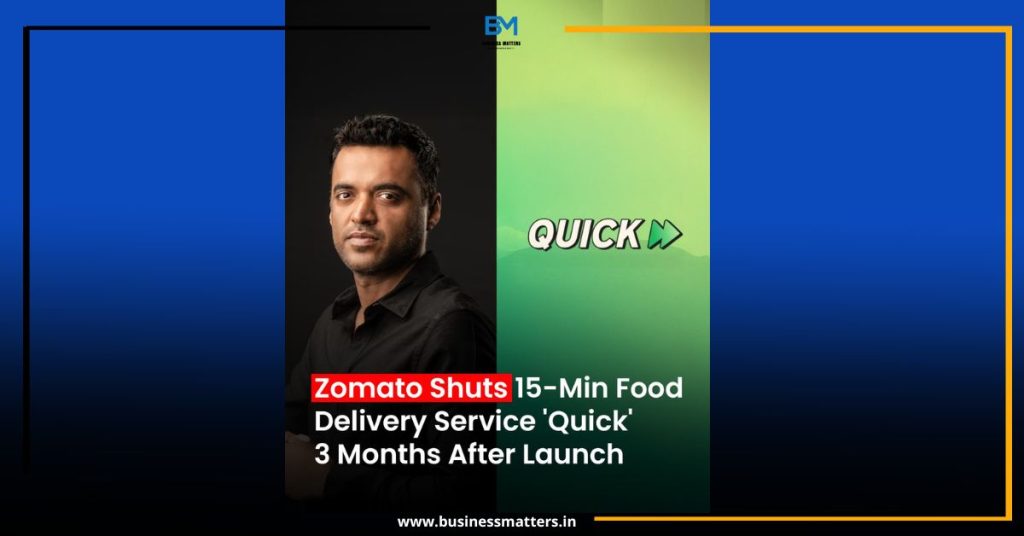Zomato, one of India’s leading foodtech platforms, has announced the discontinuation of two of its recently launched services—Zomato Quick and Zomato Everyday. The decision, communicated through a shareholder letter by Eternal, Zomato’s parent company, highlights ongoing challenges in achieving profitability in the competitive and fast-evolving food delivery market. CEO Deepinder Goyal cited unsustainable cost structures and the risk of compromising customer experience as the primary reasons for shutting down these services.
Launched just over three months ago, Zomato Quick was positioned as a game-changer in India’s food delivery industry. It promised meal delivery in under 15 minutes, targeting urban customers looking for ultra-fast service. However, the logistical complexity, infrastructure demands, and high operational costs associated with 15-minute deliveries made the model financially unviable in the short term. The service required a dense network of strategically located cloud kitchens or “dark stores,” along with a large delivery workforce to meet strict timelines—something that proved difficult to scale sustainably.
Read Also :- Ola Electric Delays Roadster X Motorcycle Deliveries to May 2025
On the other hand, Zomato Everyday was introduced to offer healthy, affordable, home-style meals catered primarily to working professionals and students. While the idea resonated with budget-conscious consumers, the service faced stiff competition from established tiffin services, home chefs, and local food startups. Moreover, ensuring consistent food quality at scale while keeping costs low turned out to be another significant hurdle. As Eternal noted, the path to profitability for both services was unclear without compromising on the core customer experience.
Zomato’s decision reflects a broader shift in strategy and highlights the growing pains of quick-commerce and foodtech services across India. Many food delivery companies have been grappling with the same issue—how to balance speed, quality, and profitability in a sector that is under increasing pressure from rising costs, customer expectations, and market competition. The move also aligns with a global trend where hyperlocal delivery services are reassessing their sustainability amid financial losses and operational challenges.
Rather than spreading itself thin, Zomato now plans to double down on its core food delivery operations. The company has reaffirmed its commitment to long-term profitability and customer satisfaction, focusing on optimizing operations, improving margins, and investing in scalable, sustainable initiatives. According to industry analysts, this strategic pivot is prudent and may serve as a benchmark for other players in the quick-commerce and food delivery space.
In summary, Zomato’s closure of its Quick and Everyday services is a strategic business decision grounded in operational realities. While the move may seem like a setback on the surface, it represents a proactive approach to maintaining fiscal discipline and customer satisfaction in a highly dynamic market. As the foodtech ecosystem continues to mature, such recalibrations are essential to ensure long-term viability and growth.


